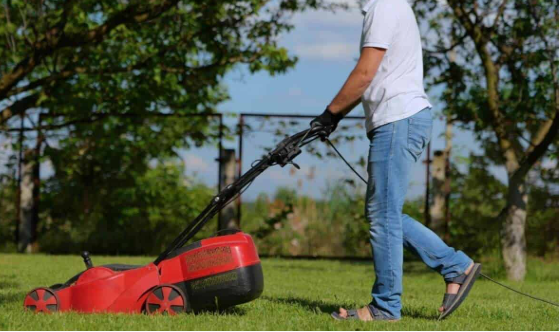A well-maintained lawn can boost curb appeal and provide a peaceful outdoor space, but the roar of a traditional lawn mower can easily disrupt that tranquility. For homeowners and neighborhoods alike, excessive mower noise can be more than just an annoyance; it contributes to noise pollution that affects both people and local wildlife. The good news? You don’t have to sacrifice a beautiful lawn to enjoy a quieter environment. In this article, let’s learn some useful ways to reduce the lawn mower noise.
Practical Ways to Minimize Lawn Mower Noise
Here are several effective strategies to help you reduce lawn mower noise and maintain your yard more peacefully.
Choose a Quieter Mower Type
The type of mower you use makes a big difference in noise output. So, how loud is a lawn mower? Gas-powered mowers are typically the loudest, with some models exceeding 90 decibels. Electric mowers, particularly some battery-powered models, are significantly quieter and more environmentally friendly. Manual reel mowers, while not ideal for large lawns, produce almost no noise and are great for small yards.
Maintain Your Mower Regularly
A well-maintained lawn mower operates more efficiently and with less noise. Dull blades can strain the engine, causing it to work harder and louder. Regularly sharpen the blades, check the muffler for wear or damage, and keep the engine tuned. Clean debris from under the deck and around moving parts to ensure smooth, quiet operation.
Install or Replace the Muffler
If you use a gas-powered mower, the muffler plays a crucial role in reducing engine noise. Over time, mufflers can rust, crack, or become clogged, resulting in a noticeable increase in sound. Replacing a damaged muffler with a high-quality, aftermarket version or upgrading to a quieter model can significantly cut down on decibel levels.
Mow at the Right Time of Day
Timing matters when it comes to minimizing disruption. Avoid mowing early in the morning or late in the evening when neighbors are more likely to be resting or indoors with windows open. Mid-morning or late afternoon tends to be the most considerate time, balancing productivity and courtesy.
Use Noise-Reducing Accessories
For those who prefer to stick with their existing mower, consider investing in noise-reducing accessories. Vibration dampeners, rubber deck shields, and sound-deadening materials can be added to certain mower components to reduce rattling and vibration noise. These upgrades are inexpensive and simple to install.
Mow Less Frequently with Smarter Landscaping
Another way to reduce noise is to reduce how often you mow. Switching to low-maintenance grass types or incorporating more ground cover, native plants, or mulch areas in your yard can lessen the need for frequent mowing. These alternatives also offer aesthetic and ecological benefits by reducing water usage and attracting pollinators.
Wear Hearing Protection
While this doesn’t reduce the noise for others, wearing earmuffs or earplugs can protect your hearing if you’re operating a noisy mower. Some models of hearing protection even include built-in Bluetooth, allowing you to listen to music while muffling engine noise.
Opt for Robotic Lawn Mowers
For the tech-savvy homeowner, robotic lawn mowers are a game-changer. Compared to traditional mowers, these battery-powered machines like the eufy Lawnbot E18 work autonomously and are whisper-quiet with a sound as low as 56 dB. They maintain lawns through frequent, short trims, which means less grass buildup and virtually no need for loud weekend mowing sessions.
Final Thoughts
In short, reducing lawn mower noise pollution is not only a considerate move for your neighbors—it’s also a healthier choice for your hearing and the environment. Whether you opt for a quieter mower, upgrade accessories, or simply mow at better times, small changes can make a big impact. With the right tools and approach, you can enjoy a neatly trimmed yard without all the noise.

